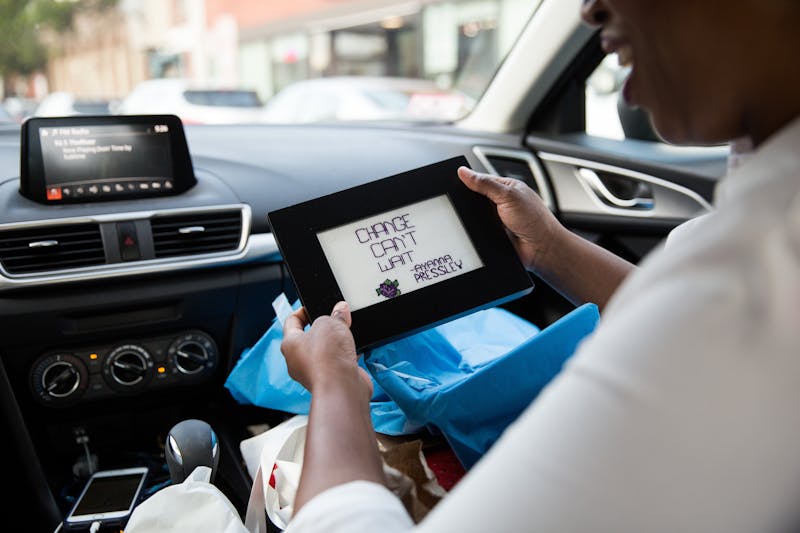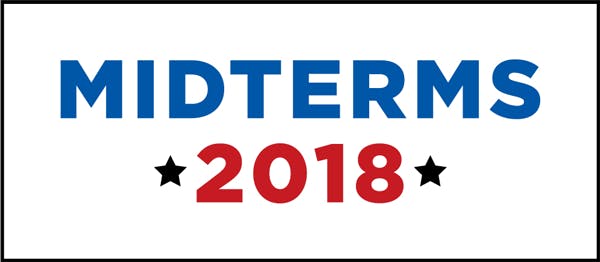Ayanna Pressley’s surprise primary win over Michael Capuano—a power in Boston politics, with 20 years in Congress representing the Massachusetts 7th and the support of virtually the entire state Democratic establishment—defies easy explanation. Unlike other insurgent leftists who have roiled the political landscape this campaign season, she had trouble outflanking Capuano, a stalwart liberal who supported Medicare for All well before it was popular, from the left. But she did have some advantages. She’s young—44 years old to his 66. She is black and he is white, a decisive factor in a district that had become majority-minority in the decades Capuano has served in Congress. Most important, she was something new, and something new seems very much to be what voters want. Pressley packed her message of transformation into a three-word slogan that captured the urgency and promise of the first campaign season of the Trump era: “Change can’t wait.”
If Democratic leaders in Congress have given the impression that they are clueless riders on the tiger of an inflamed Democratic base—consider their tepid slogans “A Better Deal” and “For the People”—here was the tiger itself, muscular and immediate. The national press seized on Pressley’s slogan as a kind of mantra for a new political generation. CNN declared that it “connected the Democratic optimism of the early Barack Obama years to the urgency of Donald Trump’s presidency.” The network was right; Pressley was clearly paying homage to the last great Democratic slogan, Obama’s “Change we can believe in.” But even as she was harnessing Obama’s rhetorical prowess to target his poisonous successor in the White House, she was also making a critique of Obama and his legacy, and of the party he left behind.
The Obama presidency was indeed a source of inspiration for African Americans—“an eight-year showcase of a healthy and successful black family spanning three generations, with two dogs to boot,” as Ta-Nehisi Coates put it—but it was also a source of frustration. The pace of change was too slow, and Obama’s temperament too unflappable in the face of widespread social injustice. He was caught between suspicious white voters on the right and the enormous expectations of black voters (and white liberals) on the left, which limited his ability to address the issues of race head on. His famously artful response to the death of Trayvon Martin in 2012—“If I had a son, he’d look like Trayvon”—was a case in point: a constrained attempt at catharsis.

Those frustrations extended to Obama’s steady, deliberate approach to issues beyond race: stagnant wages, student debt, sexism in the workplace (and now, the White House), a broken health care system, a broken immigration system, and the yawning divide between the rich and everyone else. For many Democrats, these issues require more daring policies—Medicare for All, the abolition of ICE—than what Obama was willing to offer. They will also require a fundamentally different kind of politician. “Those closest to the pain should be closest to the power,” Pressley would say during her campaign—another striking line that, like her slogan, is sure to make certain Democrats wince, as it implicitly pits groups (minorities, working people) against others (whites, the wealthy).
But the real downside to Pressley’s slogan lies not in its class and identity politics, but in its unapologetic impatience. Democrats like Pressley want not just to send Donald Trump back to the world of reality television, but also to right the nation’s long history of wrongs with a dramatic flurry of legislative action. If, as many expect, Democrats take back the House in 2018, they will still be in a very rowdy minority, since any bill they pass will meet opposition from the Republicans in the Senate and the White House. The real challenge will come if Democrats are able to build off that success to win back control of the entire federal government in 2020. Then, there will be pressure from Democrats like Pressley to repudiate Obama’s measured style, as well as his repeated deference to the ghost of a bipartisan consensus that had all but vanished by the time he reached office.
Can this new kind of Democrat be realistic about the pace of change in a divided country, and, for that matter, in a divided party? Can the party move at a blistering pace without falling apart? That remains to be seen. Campaigns, of course, are not a time for realism but for expressing hopes and dreams, anger and frustration. In this respect, today’s insurgent Democrats are not all that different from those who, back in 2008, believed that change couldn’t come soon enough, who were themselves clawing their way out of the political wilderness, and who were encapsulated in another, similarly determined Obama slogan: Yes, we can.

